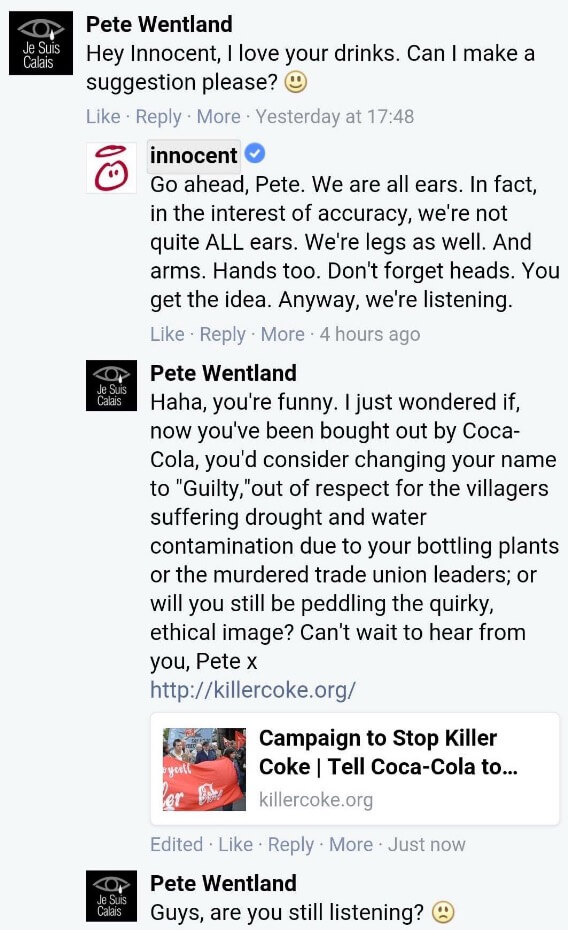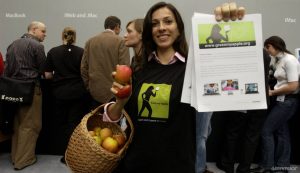In 1998, three Cambridge graduates founded a special company and did it really well: Innocent Drinks are innocent, through and through. The very best ingredients, a white production waistcoat, a clear conscience. What's inside is what's good for you, what's inside is written on it, and it's formulated in a particularly loving way. What's more, Innocent is built on a solid ethical foundation: with the drinks, it's easy and delicious to do good. To yourself and to others, because flawless production and support for charitable causes are naturally part of it.
The whole story of the brand is perfect! For this, Innocent has rightly been applauded standing from all sides since its immaculate conception. And commercial success has not been lacking either, at least not for the founders, who sold 90 percent of their baby to the Coca Cola Company for many millions of pounds a few years ago. And we sense that suddenly something is not working out.
A relevant credible brand story is a powerful bond between brand and its audience. However, the brand story strikes back just as powerfully when credibility crumbles. In this particular case, it is about Coca Cola 's apparently more than problematic handling of environmental protection and human rights in some countries of the world. And this is now no longer just an academic question of credibility, but directly attacks the brand core. That is deadly!

Unfortunately, when founders sell their companies, they often also sell their soul and that of their brand, and then it's all over with innocence. Don Henley provides the appropriate soundtrack with "The End of the Innocence".
When happily ever after fails
And we've been poisoned by these fairy tales
The lawyers dwell on small details
Since daddy had to fly
Invented, externally imposed brand stories are nothing more than disguised advertising campaigns anyway, i.e. the noise before the defeat. Brand stories only really work if they spring from the heart of the company, and rarely is this so closely experienced as at Innocent , where brand story and brand name are one. All the more dramatic when there are serious problems right here, in the brand core, in the mission. These problems run rampant throughout the entire company, right into employer branding. Danger is imminent!
What to do? - First, solve the problems, one way or another. At the latest since the internet came into existence, nothing can be fudged or dismissed any more anyway.
Secondly, consider how a brand with high ethical standards like Innocent can benefit the entire Coca Cola Company. Because change for the positive is a powerful lever to strengthen brands. Yes, even seemingly immortal brands like Coca Cola need to think hard about this. Meaningful brands - brands with meaning and benefit - perform much better economically than others, as has been proven time and again in extensive research. Especially with young audiences, it's a matter of getting down to the nitty-gritty. Up to over 90 percent of millennials prefer brands with purpose, and the willingness to switch to such brands is breathtakingly high.
Problems can have a stimulating effect. A few years ago, Apple came under the scrutiny of Greenpeace when it came to environmental protection. The environmentalists launched the Green my Apple campaign, which not only drove Steve Jobs & Co. to far-reaching improvements, but also spurred the development of the MacBookAir. And that, on balance, is not bad news.

